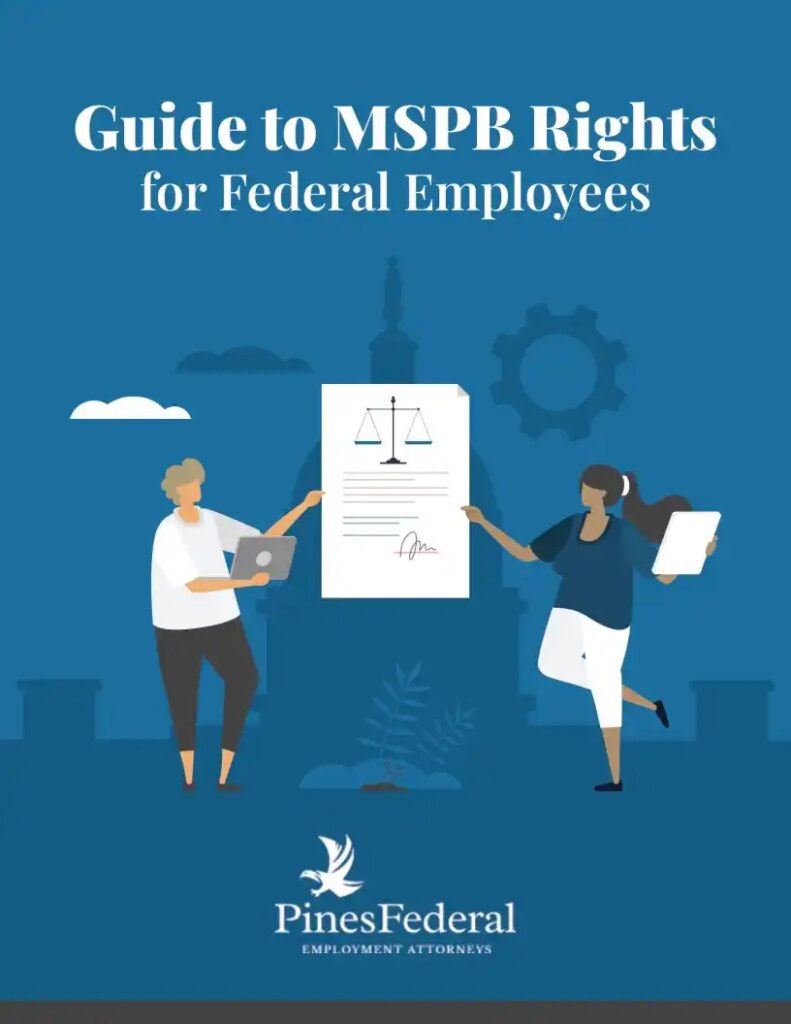
In 1981, seven people were fired by four different government agencies. Each believed that the punishment far outweighed the crime. Initially, the MSPB (Merit Systems Protection Board) disagreed, but upon further review, it realized these people were correct.
The outcome of Curtis Douglas vs. Veterans Administration was the Douglas Factors.
For immediate assistance from our experienced MSPB lawyers, contact us online or call (800) 801-0598 today.
The 12 Douglas Factors
The Douglas Factors is a set of twelve rules designed to protect federal workers from being overly penalized for offenses. Below is a list of questions that must be asked before a federal employer pursues an adverse action.
1. How Serious Was the Offense, and What Was the Intent?
Employers must consider the context of an offense. Take dishonesty, for example. Lying to your boss is never good, but the severity of the lie matters.
Did someone, for example, tell their boss that they were almost done with something they hadn’t started, or were they in the middle of a criminal investigation and lied about evidence? According to the Douglas Factors for federal employees, employers cannot penalize both actions the same.
Intent also matters. Perhaps there was a leak of sensitive information. This is a serious offense, but what led to it? Was it a sincere mistake on someone’s part, or was that person using this leak for personal or financial gain? Either situation requires attention, but one is clearly more severe and dishonest than the other.
2. How Prominent of a Position Does the Offender Have?
Sometimes, the outside impact of an offense is just as important as the offense itself. Someone at high levels of government must be above reproach, especially if they interact with the public. An offense at the highest levels brings more attention and scrutiny to the problem, and the offender may be in danger of a harsher penalty.
Alternatively, this consideration protects someone lower in the organization. Since their offense will probably be overlooked by those outside the organization, they may receive a lighter adverse action.
3. What Is the Offender’s Disciplinary Record?
Someone with a history of breaking rules and causing problems will probably receive a greater penalty for their offense. Likewise, someone with a clean record and only one infraction should receive a lighter penalty.
4. What Is the Offender’s Positive Record?
Employers must consider a worker’s performance alongside their disciplinary history. Beyond simply having no prior record of offenses, a worker may have a stellar performance record.
A great worker is an asset, and they have proven their trustworthiness and loyalty. Therefore, they may be able to receive a lighter penalty under the Douglas Factors.
5. Does the Offense Affect Job Performance?
When someone breaks the rules, their behavior must be addressed. However, sometimes the offense is unrelated to the job at hand.
After being accused of an offense, the worker may still be able to perform their job perfectly. Moreover, they could still have the faith and confidence of their supervisors. Continued quality performance could allow them to receive a lighter penalty.
6. Is the Penalty Consistent Across Workers?
When observing others who were punished for the same offense, there should be consistency. If an offender’s penalty seems out of balance, an employer could be guilty of going against the Douglas Factors.
This standard can help mitigate bias. By ensuring that equal offenses receive equal punishment, it helps eliminate personal prejudice from affecting outcomes.
7. Is the Penalty Consistent with the Table of Penalties?
To keep their rules and penalties consistent, many organizations have their own table of penalties. These tables work as a simple reference point where Infraction A results in Penalty B.
MSPB examines an organization’s application of its table of penalties to determine if a penalty was reasonable. If an employer is penalizing far beyond organizational standards, they may be guilty of going beyond the Douglas Factors as well.
8. What Was the Offense’s Impact on the Agency?
Employers should consider whether someone simply broke a rule or if, by breaking that rule, they somehow damaged the organization.
Damage could come in the form of negative press and a souring of public perception. It could also result in creating a bad reputation among other agencies. If the offense was that severe, the offender could face a large penalty. If not, the Douglas Factors require that the penalty should match the offense’s impact.
9. How Clear Are the Agency’s Directives?
Sometimes, people break the rules simply because they don’t understand the expectations. If an employer does a poor job of making its regulations clear, its workers should not be held accountable for accidentally breaking them.
10. What Is the Rehabilitation Potential of the Offender?
This question can be considered on multiple levels. First, is the penalty likely to help the offender learn from their mistakes and do better, or will it simply drag them down?
Also, employers must consider the offender’s behavior during the disciplinary process. If the accused appears contrite, cooperative, and apologetic, the employer may consider a lighter punishment. However, if the accused continues to show sneaky, dishonest behavior, the employer could potentially choose a harsher penalty.
11. What Were the Circumstances Around the Offense?
Sometimes, people make bad choices for selfish gain. Other times, they may be under stress, and they aren’t thinking clearly. According to the Douglas Factors, an employer must consider the mitigating circumstances surrounding the offense.
For example, were there abnormal tensions at work? Perhaps the employee was suffering from mental illnesses or a personality disorder. Maybe they were being harassed, and they lashed out. On such occasions, the offender could receive a lighter sentence.
12. Can an Alternative Penalty Yield the Same Results?
Finally, an employer must consider the outcome of a penalty. Is it necessary for them to jump straight to a certain adverse action, or could another option be just as effective?
[DOWNLOAD] MSPB Rights for Federal Employees

How Can I Use the Douglas Factors to Protect My Job?
Federal law requires executive agencies to follow specific procedures before removing, demoting, or suspending an employee.
When misconduct or performance failure occurs, an agency official must perform an investigation into the circumstances. The official must collect information, apply the Douglas Factors, and recommend an appropriate penalty to the deciding official.
Once the proposing official sends their recommendation, you will receive a notice of the charges and the factors applied. You must receive an opportunity to respond orally or in writing.
If you have evidence that changes the answer to one of the Douglas Factors, you should convey that information in your reply. The deciding official must consider your response before applying a penalty.
If the agency failed to follow the procedures or overly penalized an offense, you may have the right to appeal to the MSPB. MSPB will review the agency’s decision and application of the Douglas Factors for removals, demotions, and suspensions over 14 days.
If the MSPB finds that the penalty was unreasonable under the circumstances, it may cancel the decision. However, agencies have the right to start over and apply a different penalty for the same conduct.
Douglas Factors Examples
The Douglas Factors require agencies to make consistent, uniform decisions regarding adverse actions for poor performance and conduct. The circumstances determine the reasonableness of the penalty, and each incident is different.
Thus, an acceptable penalty in one instance may be prohibited in another. Similarly, a penalty may be appropriate, but MSPB may cancel an action because the agency fails to follow procedures.
An example of the Douglas Factors at work includes a demotion for theft. Theft is an instance of misconduct that may be subject to adverse action under the law.
However, an employee with a disciplinary history could receive a harsher penalty than an employee who has never committed an infraction. On the other hand, two equally situated employees should not receive different penalties.
Another factor to consider is whether the adverse action is “for such cause as will promote the efficiency of the service.” Off-duty conduct may create the basis for an adverse action. However, there must be a substantial “nexus” or connection between the employee’s conduct or performance and the agency’s work or function.
For example, the Federal Circuit has upheld adverse actions based on a conviction of child sexual abuse because the nature and gravity of the appellant’s criminal misconduct created a presumed nexus.
On the other hand, the Federal Circuit canceled an action based on an employee’s off-duty conduct. The court ruled that videotaping women’s sexual relations without their consent was offensive but not illegal. Thus, the conduct could not form the basis of an adverse action.
Speak with an Experienced Federal Employment Attorney Today
If you’re facing a suspension, demotion, or termination from a federal job, seek the services of a good attorney. You have the right to challenge your accusation, and you may be represented. A lawyer can investigate your case, and if they see violations of the Douglas Factors, they can stand up for your rights.
At Pines Federal Employment Attorneys, our lawyers have over 60 years of combined experience administering the Douglas Factors for federal employees. When preparing for your oral reply or preparing for your MSPB hearing, contact our attorneys and let us guide you through the process.
Call (800) 801-0598 or reach us online today to get started.